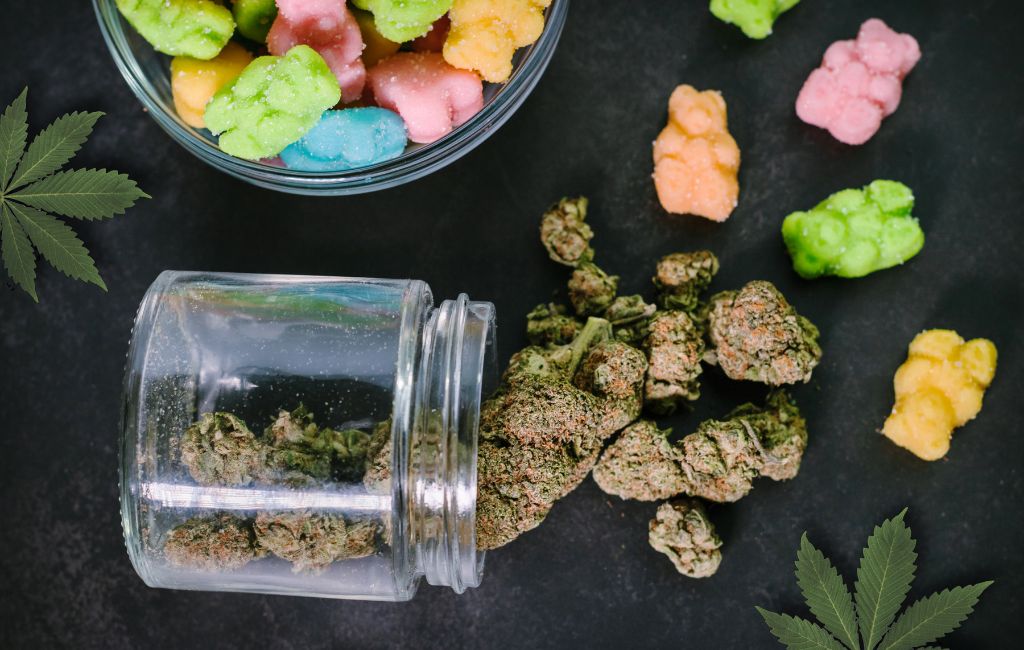THCa Buds: Nature’s Pure Power
In recent years, the cannabis industry has seen a surge in interest surrounding THCa buds. These raw, unheated cannabis flowers are gaining attention for their potential health benefits and unique properties. This article explores the science behind THCa, its potential uses, and why it is becoming a popular choice among cannabis enthusiasts.
Understanding THCa: The Basics
THCa, or tetrahydrocannabinolic acid, is a non-psychoactive cannabinoid found in raw cannabis plants. Unlike THC, which is known for its psychoactive effects, THCa does not produce a “high” when consumed. This is because THCa must be decarboxylated, a process that involves heating, to convert into THC.
THCa is abundant in fresh cannabis plants and is often found in higher concentrations than THC. This makes it an attractive option for those seeking the therapeutic benefits of cannabis without the psychoactive effects.
The Science Behind THCa
Research into THCa is still in its early stages, but preliminary studies suggest that it may offer a range of health benefits. Some of the potential therapeutic properties of THCa include:
- Anti-inflammatory effects
- Neuroprotective properties
- Anti-emetic (anti-nausea) effects
- Antioxidant properties
These properties make THCa a promising candidate for further research and potential medical applications.
Potential Health Benefits of THCa Buds
While more research is needed to fully understand the benefits of THCa, anecdotal evidence and early studies suggest that it may be beneficial for various conditions. Some potential uses include:
Managing Inflammation
Inflammation is a common underlying factor in many chronic diseases, including arthritis and autoimmune disorders. THCa’s anti-inflammatory properties may help reduce inflammation and alleviate symptoms associated with these conditions.
Neuroprotection
Neurodegenerative diseases, such as Alzheimer’s and Parkinson’s, are characterized by the progressive loss of nerve cells. THCa’s neuroprotective properties may help protect nerve cells and slow the progression of these diseases.
Reducing Nausea and Vomiting
Nausea and vomiting are common side effects of chemotherapy and other medical treatments. THCa’s anti-emetic properties may help reduce these symptoms, improving the quality of life for patients undergoing treatment.
THCa vs. THC: Key Differences
While THCa and THC are closely related, they have distinct differences that set them apart. Understanding these differences can help consumers make informed decisions about which cannabinoid is right for them.
Psychoactivity
The most significant difference between THCa and THC is their psychoactivity. THCa is non-psychoactive, meaning it does not produce the “high” associated with THC. This makes it an appealing option for those who want to experience the benefits of cannabis without the psychoactive effects.
Consumption Methods
THCa is typically consumed in its raw form, often through juicing or adding raw cannabis to smoothies. This preserves the THCa content and allows consumers to experience its benefits without converting it to THC.
Case Studies and Real-World Examples
Several case studies and real-world examples highlight the potential benefits of THCa. For instance, some patients with chronic pain have reported significant relief after incorporating THCa into their treatment regimen. Others have found that THCa helps manage symptoms of anxiety and depression without the psychoactive effects of THC.
These examples underscore the need for further research into THCa and its potential applications in the medical field.
The Future of THCa in the Cannabis Industry
As interest in THCa continues to grow, the cannabis industry is beginning to take notice. More companies are developing products that highlight the benefits of THCa, from raw cannabis juices to THCa-infused topicals.
The increasing demand for non-psychoactive cannabis products suggests that THCa may play a significant role in the future of the industry. As research progresses, we can expect to see more innovative products and applications for this powerful cannabinoid.
Conclusion
THCa buds represent a promising area of exploration within the cannabis industry. With their potential health benefits and non-psychoactive nature, they offer a unique alternative for those seeking the therapeutic properties of cannabis without the high. As research continues to uncover the full potential of THCa, it is likely to become an increasingly popular choice among consumers and medical professionals alike.
